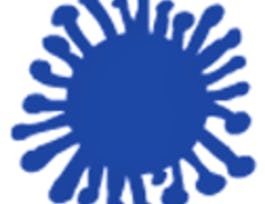This second of five courses focuses on how social determinants of health affects vulnerable populations. Focusing on four groups of vulnerable populations, students will examine how social determinants of health contribute to the poor health outcomes experienced by these populations. The topics of this course include:

Schenken Sie Ihrer Karriere Coursera Plus mit einem Rabatt von $160 , der jährlich abgerechnet wird. Sparen Sie heute.


Social Determinants of Health: Vulnerable Populations
Dieser Kurs ist Teil von Spezialisierung Social Determinants of Health: Data to Action


Dozenten: Daniel J. Pesut, Ph.D., RN, FAAN
Bei  enthalten
enthalten
Kompetenzen, die Sie erwerben
- Kategorie: Health Informatics
- Kategorie: Data Analysis
- Kategorie: Health Equity
- Kategorie: Data Visualization
Wichtige Details

Zu Ihrem LinkedIn-Profil hinzufügen
8 Aufgaben
Erfahren Sie, wie Mitarbeiter führender Unternehmen gefragte Kompetenzen erwerben.

Erweitern Sie Ihre Fachkenntnisse
- Lernen Sie neue Konzepte von Branchenexperten
- Gewinnen Sie ein Grundverständnis bestimmter Themen oder Tools
- Erwerben Sie berufsrelevante Kompetenzen durch praktische Projekte
- Erwerben Sie ein Berufszertifikat zur Vorlage


Erwerben Sie ein Karrierezertifikat.
Fügen Sie diese Qualifikation zur Ihrem LinkedIn-Profil oder Ihrem Lebenslauf hinzu.
Teilen Sie es in den sozialen Medien und in Ihrer Leistungsbeurteilung.

In diesem Kurs gibt es 5 Module
In this module, we will discuss how poverty relates to health as we examine the interrelationships between poverty and other social determinants of health. In lesson one, we will define poverty, as we explore how poverty both causes and is caused by poor health. We will also look at some policy perspectives aimed at eradicating poverty. In lesson two, we will continue our discussion from lesson one, as we evaluate different approaches, perspectives and solutions to ending poverty. We will also consider how success is measured when evaluating the effectiveness of these proposed interventions.
Das ist alles enthalten
3 Videos7 Lektüren2 Aufgaben1 Diskussionsthema5 Plug-ins
In this module, we will consider the gender-specific impact of social determinants of health on women. In lesson one, we will review what defines a health inequity for women and examine how gender acts as an axis of health disparity. Lesson two focuses on reproductive health and the need for contraception. We will look at how the SDOH shape resources and accessibility for women at global and national levels, and how reproductive rights are tied to human rights for girls and women. Lesson three continues to build on the content from previous lessons, with a more in-depth look at maternal health. We will investigate how the SDOH impacts aspects of maternal health with a focus on pregnancy related mortality and its prevalence on global and national levels. We will also examine how structural racism drives health disparities and specifically, maternal outcomes. In lesson four, we will summarize the factors that shape gender-based health disparities and the impact on women, while investigating policy-based strategies and resources to improve health outcomes for women while addressing SDOHs.
Das ist alles enthalten
4 Videos13 Lektüren2 Aufgaben1 Diskussionsthema
In this module, we focus on the social determinants of health in LGBTQI+ populations. In lesson one, we will define important terminology related to LGBTQI+ health needs as we look at LGBTQI+ vulnerabilities to the social determinants of health. In lesson two, we will examine how heteronormativity and cisnormativity can act as negative social determinants of LGBTQI+ health and wellbeing as we consider how media and language can perpetuate these inequalities. In lesson three, we consider how microaggressions, discrimination, and implicit bias can contribute to a healthcare system bias that negatively impacts the accessibility and quality of care received by LGBTQI+ patients. In lesson four, we will review key dates in LGBTQI+ history in the United States, as we investigate social and structural level changes that can improve LGBTQI+ health outcomes.
Das ist alles enthalten
4 Videos7 Lektüren2 Aufgaben1 Diskussionsthema2 Plug-ins
In this module, we will examine the social determinants of health for families with young children and discuss policy-based strategies for improving health outcomes. In lesson one, we’ll explore the Rainbow Model as a way to understand how social determinants affect the health of young children. We will also review the different pathways through which socioeconomic circumstances influence health and contribute to child health inequalities. Applying what we learned in the previous lesson, in lesson two, we will look at a case study in order to investigate how social determinants influence a family’s ability to promote child health. Finally in lesson three, we will analyze some strategies for improving health outcomes for families with young children through policies that address social determinants of health.
Das ist alles enthalten
3 Videos2 Lektüren2 Aufgaben1 Diskussionsthema
This module will focus on analyzing, displaying and interpreting social determinants of health data, with a particular focus on comparing social determinants by group. Lesson one will provide an overview of t-test analysis and box plot visualization. In lesson two, we will learn how to conduct t-test analyses and create boxplots in R. Using the NHANES dataset, we will compare general health and Hgb a1c by gender. Using the Omaha System dataset, we will compare total signs & symptoms, social determinant of health signs & symptoms, and income signs & symptoms by gender. Finally, we will discuss how to interpret the results of our analysis as we visualize our findings using boxplots.
Das ist alles enthalten
2 Videos3 Lektüren1 peer review1 Diskussionsthema1 Unbewertetes Labor3 Plug-ins
Dozenten


Empfohlen, wenn Sie sich für Health Informatics interessieren

Universiteit Leiden

Universiteit Leiden

Politecnico di Milano

Imperial College London
Warum entscheiden sich Menschen für Coursera für ihre Karriere?





Neue Karrieremöglichkeiten mit Coursera Plus
Unbegrenzter Zugang zu über 7.000 erstklassigen Kursen, praktischen Projekten und Zertifikatsprogrammen, die Sie auf den Beruf vorbereiten – alles in Ihrem Abonnement enthalten
Bringen Sie Ihre Karriere mit einem Online-Abschluss voran.
Erwerben Sie einen Abschluss von erstklassigen Universitäten – 100 % online
Schließen Sie sich mehr als 3.400 Unternehmen in aller Welt an, die sich für Coursera for Business entschieden haben.
Schulen Sie Ihre Mitarbeiter*innen, um sich in der digitalen Wirtschaft zu behaupten.
Häufig gestellte Fragen
Access to lectures and assignments depends on your type of enrollment. If you take a course in audit mode, you will be able to see most course materials for free. To access graded assignments and to earn a Certificate, you will need to purchase the Certificate experience, during or after your audit. If you don't see the audit option:
The course may not offer an audit option. You can try a Free Trial instead, or apply for Financial Aid.
The course may offer 'Full Course, No Certificate' instead. This option lets you see all course materials, submit required assessments, and get a final grade. This also means that you will not be able to purchase a Certificate experience.
When you enroll in the course, you get access to all of the courses in the Specialization, and you earn a certificate when you complete the work. Your electronic Certificate will be added to your Accomplishments page - from there, you can print your Certificate or add it to your LinkedIn profile. If you only want to read and view the course content, you can audit the course for free.
If you subscribed, you get a 7-day free trial during which you can cancel at no penalty. After that, we don’t give refunds, but you can cancel your subscription at any time. See our full refund policy.

